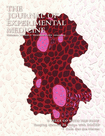Uncovering the mystery of eosinophils in food allergy

 AllerGen researchers at McMaster University have discovered that eosinophils (specialized white blood cells) in the intestine play a different role in the allergic response that causes food allergy and anaphylaxis than was previously thought
AllerGen researchers at McMaster University have discovered that eosinophils (specialized white blood cells) in the intestine play a different role in the allergic response that causes food allergy and anaphylaxis than was previously thought
Eosinophils are typically considered to be effector cells—activated cells that are recruited to the body’s tissues once an immune response has been triggered. However, the new research has shown that intestinal eosinophils can actually initiate an allergic response leading to the development of food allergy and anaphylaxis.
The study, Indigenous enteric eosinophils control DCs to initiate a primary Th2 immune response in vivo, was selected as the Society of Mucosal Immunology Featured Paper for December 2014. AllerGen investigators Drs Susan Waserman and Manel Jordana, and AllerGen trainee Dr. Derek Chu were involved with the research.
“Eosinophils have long been known to inhabit the intestine, but a precise role for them there has remained a biological and medical mystery,” says Dr. Chu, first author on the paper. “In this study, we discovered an unexpected immune network connecting resident intestinal eosinophils with dendritic cells (DCs) that was crucial for the development of peanut food allergy and anaphylaxis.”
The finding will help researchers to better understand the origins of allergy and allergic sensitization and to explore manipulating the eosinophil-DC axis as a novel therapeutic approach for immune mediated diseases such as food allergy.
